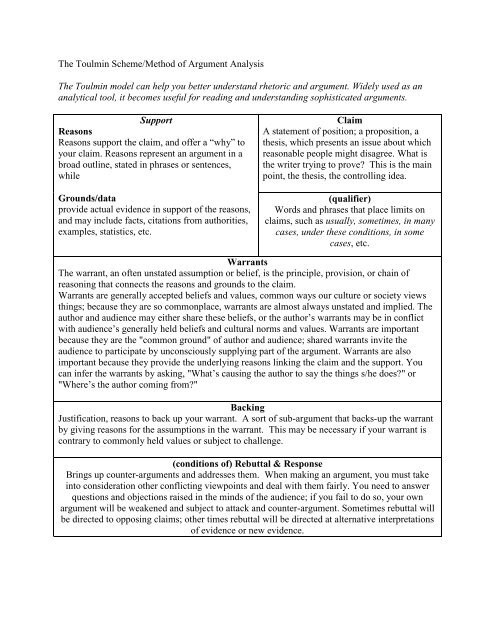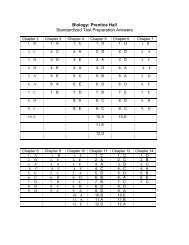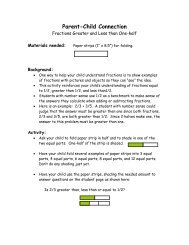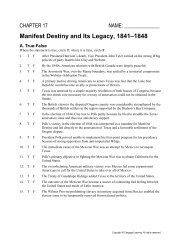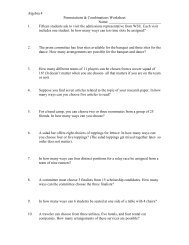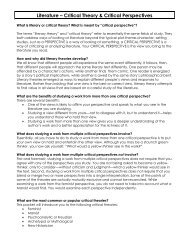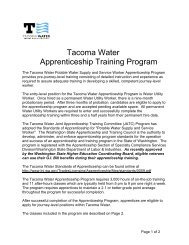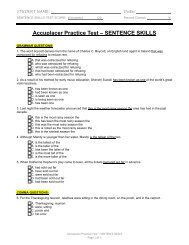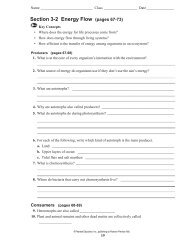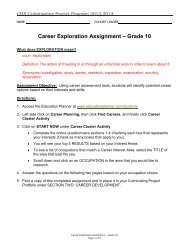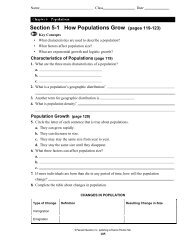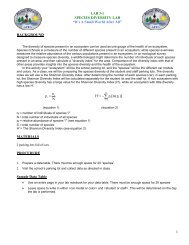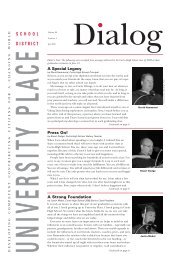The Toulmin Scheme/Method of Argument
The Toulmin Scheme/Method of Argument
The Toulmin Scheme/Method of Argument
You also want an ePaper? Increase the reach of your titles
YUMPU automatically turns print PDFs into web optimized ePapers that Google loves.
<strong>The</strong> <strong>Toulmin</strong> <strong>Scheme</strong>/<strong>Method</strong> <strong>of</strong> <strong>Argument</strong> Analysis<br />
<strong>The</strong> <strong>Toulmin</strong> model can help you better understand rhetoric and argument. Widely used as an<br />
analytical tool, it becomes useful for reading and understanding sophisticated arguments.<br />
Support<br />
Reasons<br />
Reasons support the claim, and <strong>of</strong>fer a “why” to<br />
your claim. Reasons represent an argument in a<br />
broad outline, stated in phrases or sentences,<br />
while<br />
Grounds/data<br />
provide actual evidence in support <strong>of</strong> the reasons,<br />
and may include facts, citations from authorities,<br />
examples, statistics, etc.<br />
Claim<br />
A statement <strong>of</strong> position; a proposition, a<br />
thesis, which presents an issue about which<br />
reasonable people might disagree. What is<br />
the writer trying to prove This is the main<br />
point, the thesis, the controlling idea.<br />
(qualifier)<br />
Words and phrases that place limits on<br />
claims, such as usually, sometimes, in many<br />
cases, under these conditions, in some<br />
cases, etc.<br />
Warrants<br />
<strong>The</strong> warrant, an <strong>of</strong>ten unstated assumption or belief, is the principle, provision, or chain <strong>of</strong><br />
reasoning that connects the reasons and grounds to the claim.<br />
Warrants are generally accepted beliefs and values, common ways our culture or society views<br />
things; because they are so commonplace, warrants are almost always unstated and implied. <strong>The</strong><br />
author and audience may either share these beliefs, or the author’s warrants may be in conflict<br />
with audience’s generally held beliefs and cultural norms and values. Warrants are important<br />
because they are the "common ground" <strong>of</strong> author and audience; shared warrants invite the<br />
audience to participate by unconsciously supplying part <strong>of</strong> the argument. Warrants are also<br />
important because they provide the underlying reasons linking the claim and the support. You<br />
can infer the warrants by asking, "What’s causing the author to say the things s/he does" or<br />
"Where’s the author coming from"<br />
Backing<br />
Justification, reasons to back up your warrant. A sort <strong>of</strong> sub-argument that backs-up the warrant<br />
by giving reasons for the assumptions in the warrant. This may be necessary if your warrant is<br />
contrary to commonly held values or subject to challenge.<br />
(conditions <strong>of</strong>) Rebuttal & Response<br />
Brings up counter-arguments and addresses them. When making an argument, you must take<br />
into consideration other conflicting viewpoints and deal with them fairly. You need to answer<br />
questions and objections raised in the minds <strong>of</strong> the audience; if you fail to do so, your own<br />
argument will be weakened and subject to attack and counter-argument. Sometimes rebuttal will<br />
be directed to opposing claims; other times rebuttal will be directed at alternative interpretations<br />
<strong>of</strong> evidence or new evidence.
Example<br />
Claim<br />
<strong>The</strong> federal government should ban<br />
smoking.<br />
Qualifier<br />
<strong>The</strong> ban on smoking would be limited<br />
to public spaces.<br />
Support<br />
Reasons<br />
Smoking causes serious diseases in smokers.<br />
Nonsmokers are endangered by second-hand smoke.<br />
Grounds<br />
Numbers <strong>of</strong> deaths attributed to second-hand smoke.<br />
Lawsuits recently won against large tobacco companies<br />
citing need for reparation for smoking-related health<br />
care costs.<br />
Examples <strong>of</strong> bans already imposed in many public<br />
places.<br />
Warrants<br />
<strong>The</strong> Constitution promises to “promote the general welfare.”<br />
Citizens are entitled to protection from harmful actions by others.<br />
Backing<br />
<strong>The</strong> United States is based on a political system that is supposed to serve the basic needs <strong>of</strong> its<br />
people, including their health.<br />
(conditions <strong>of</strong>) Rebuttal<br />
Smokers have rights too.<br />
Smoking laws should be left to the states.<br />
Such a ban could not be enforced.<br />
Response<br />
<strong>The</strong> ban applies to public spaces; smokers can smoke in private.<br />
<strong>The</strong> power <strong>of</strong> the federal government to impose other restrictions on smoking, such as warning<br />
labels on cigarettes and bans on cigarette advertisements on television has survived legal<br />
challenges.<br />
<strong>The</strong> experience <strong>of</strong> New York City, which has imposed such a ban, suggests that enforcement<br />
would not be a significant problem.


